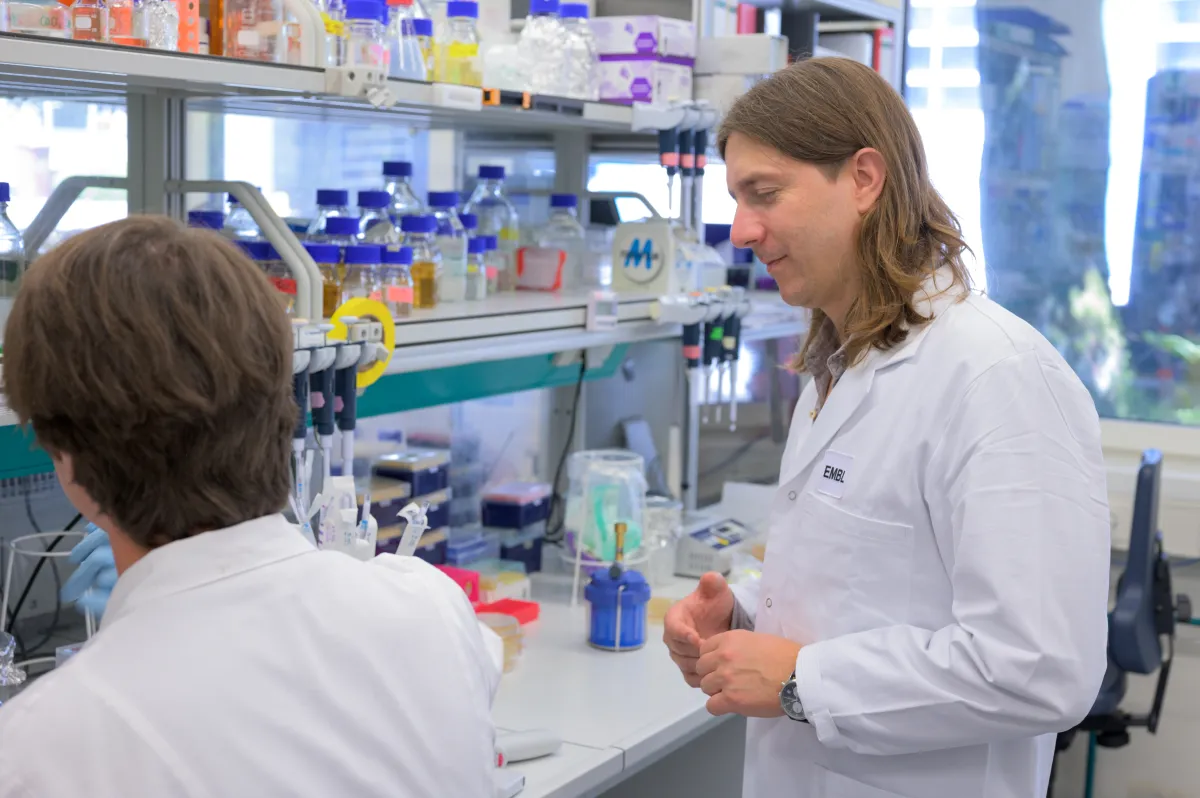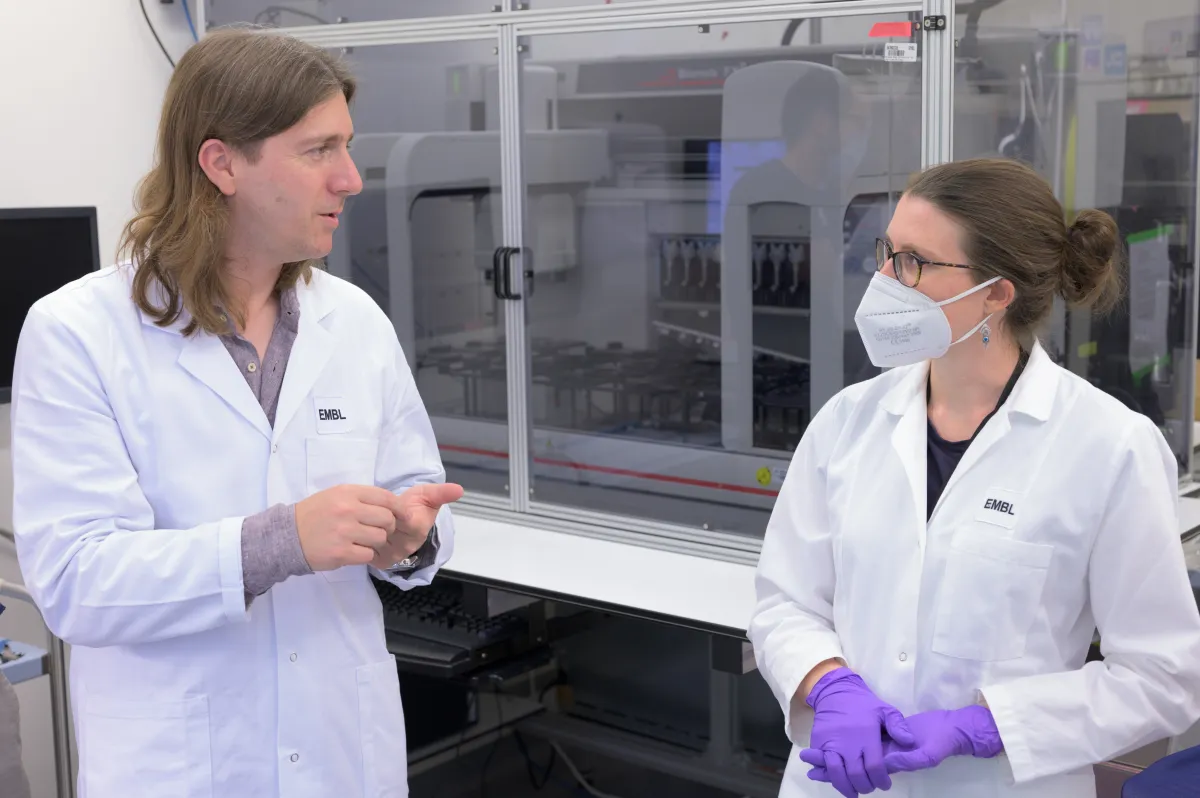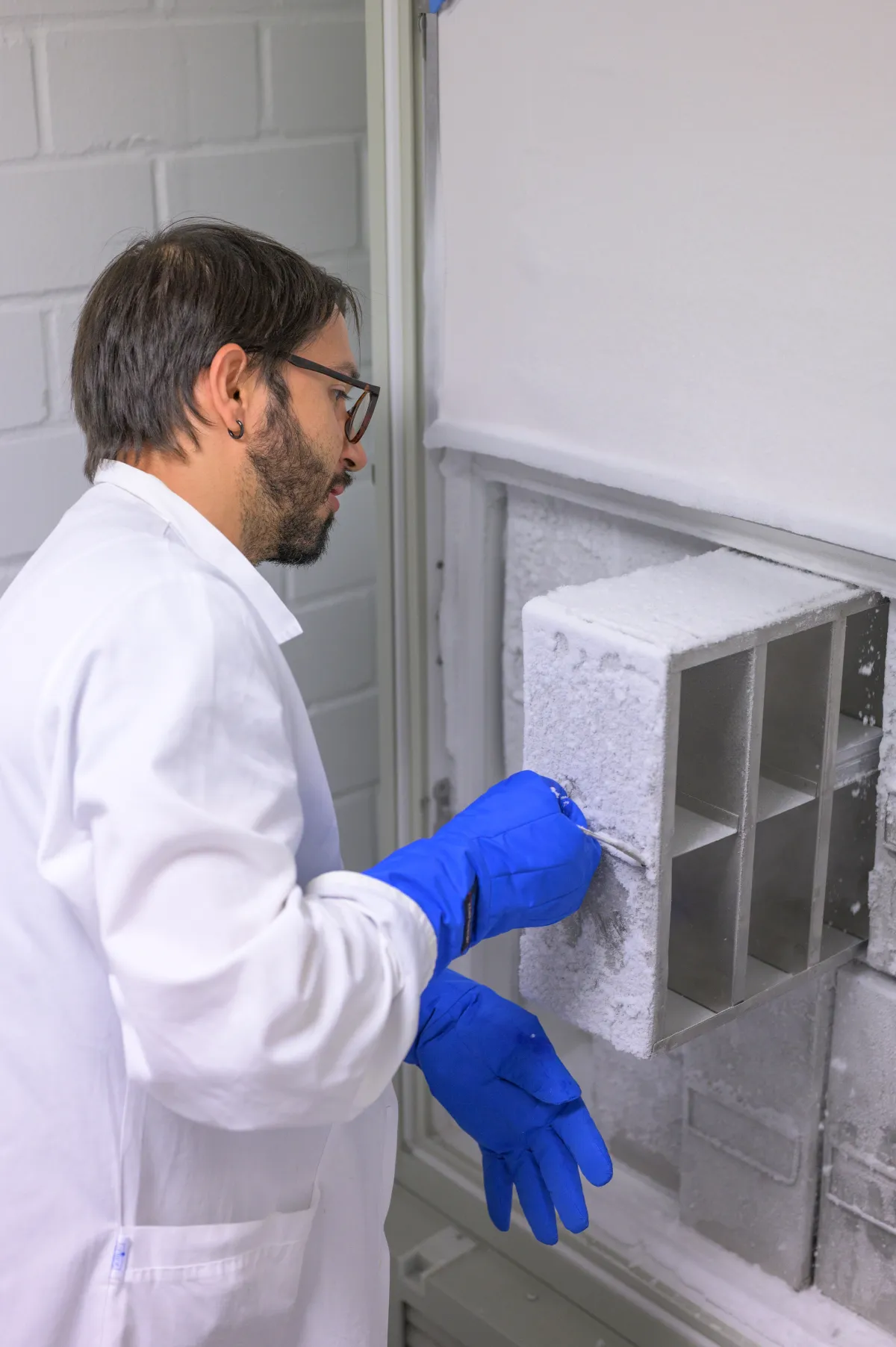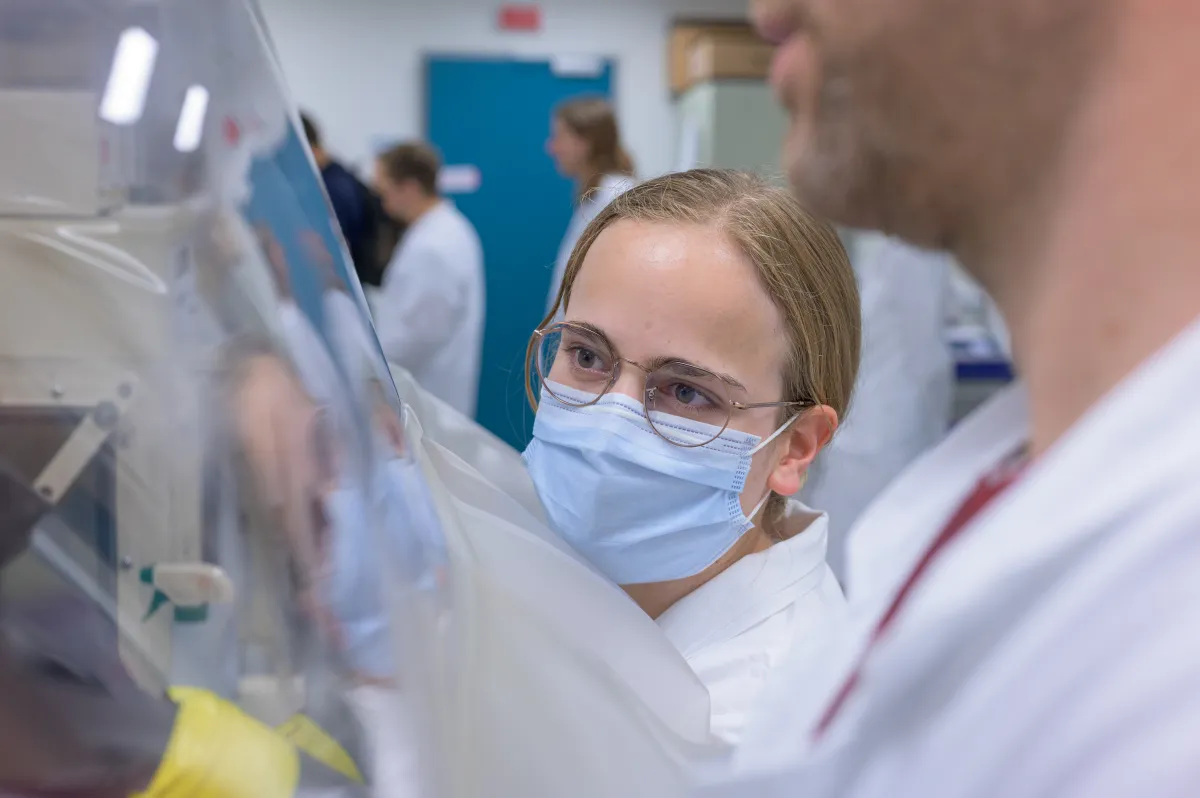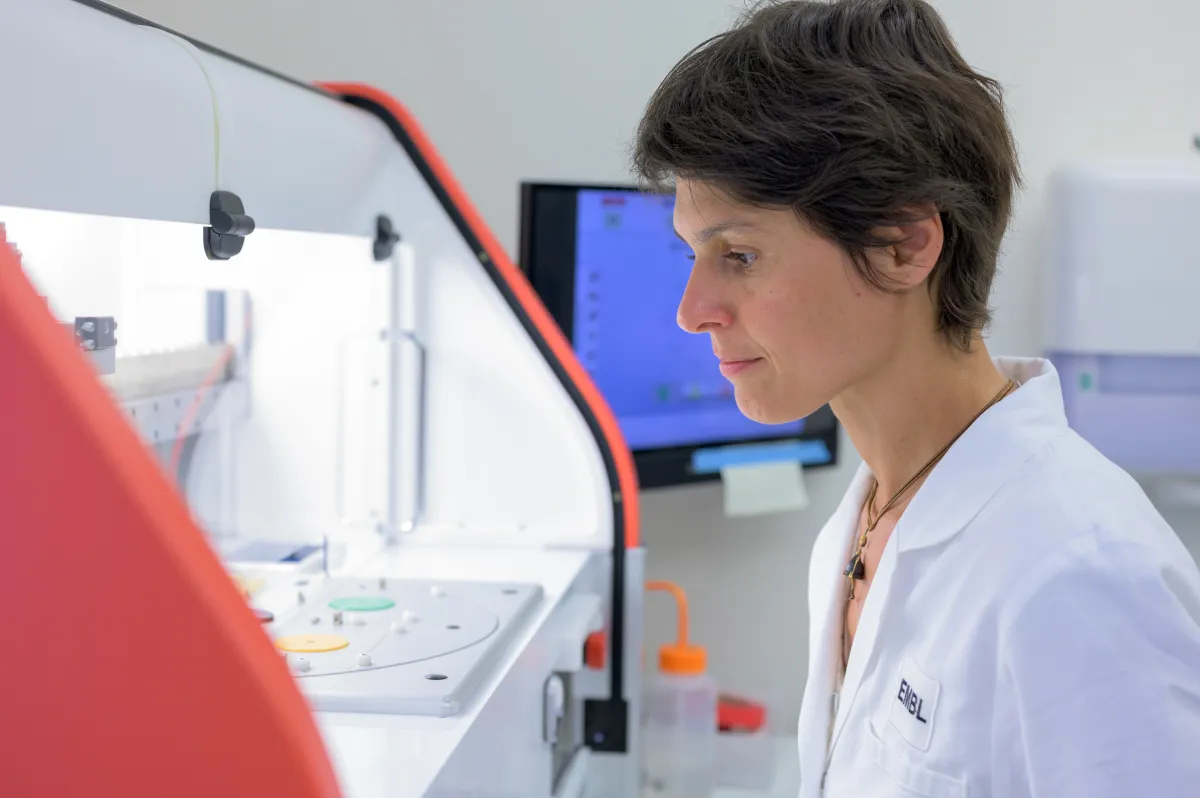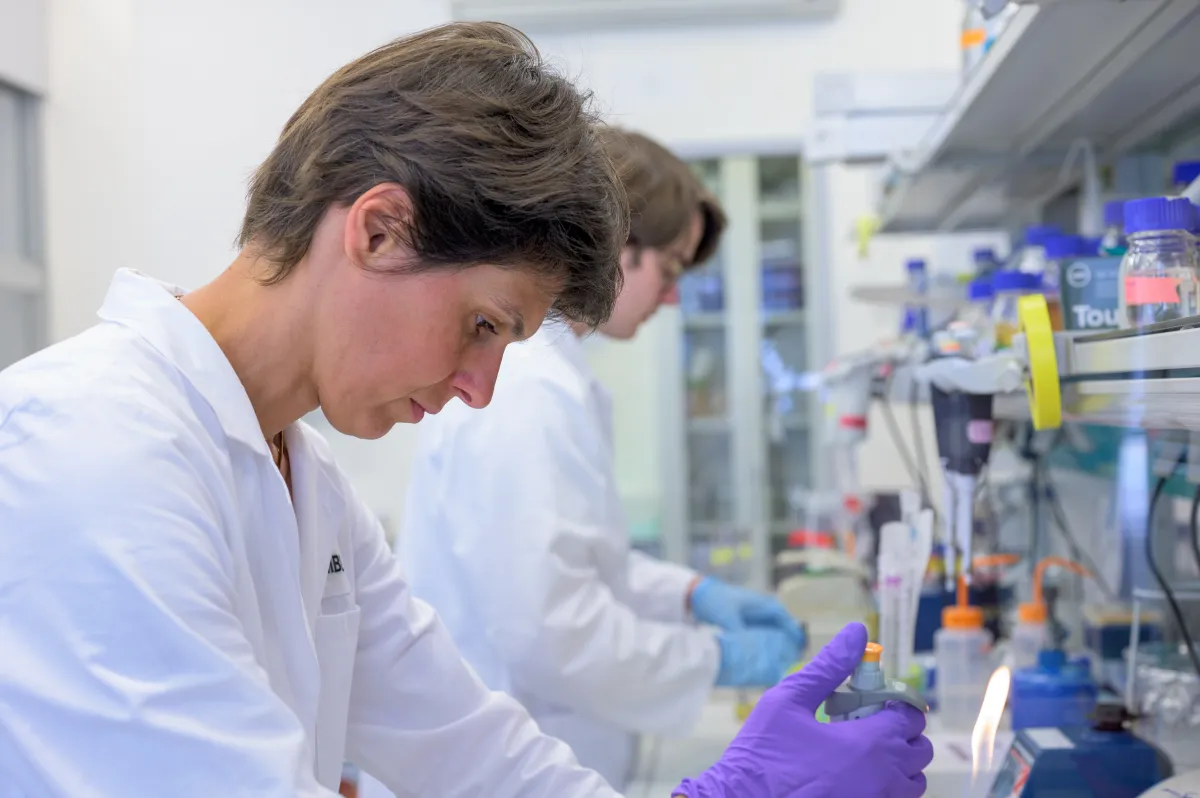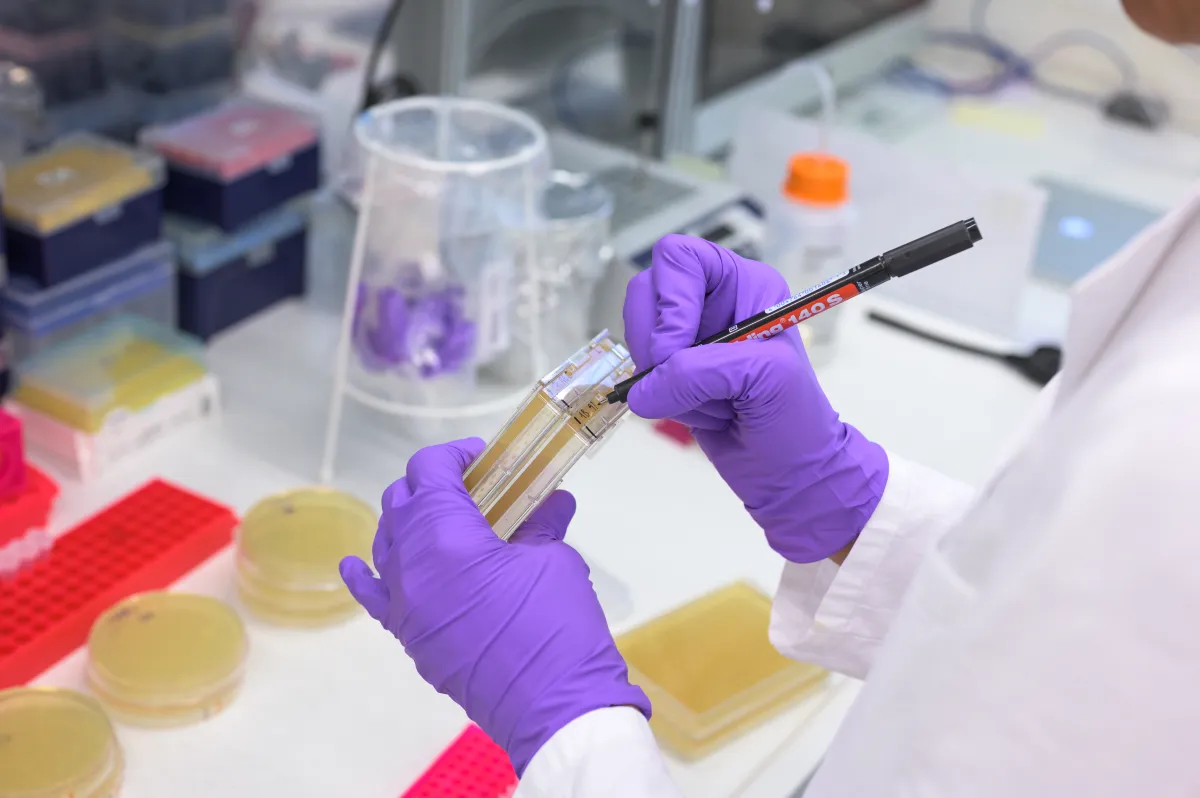Athanasios Typas Creating model bacteria to uncover the hidden treasure of the human gut microbiome
Athanasios Typas, Head of the” Systems Microbiology” group in the Genome Biology Unit at EMBL, Heidelberg, Germany. Co-Chair of the "Microbial Ecosystems” and “Infection Biology” Research Themes of the new EMBL Program 2022-2026: “From Molecules to Ecosystems”.
- 2022 • Liliane Bettencourt Prize for Life Sciences



Composed of over 500 bacterial species and containing 100 times more genes than of our own genome, the microbiome colonizing the human gut offers invaluable opportunities for tomorrow’s medicine. New tools and strategies orchestrated by Athanasios Typas will be the key to access this treasure trove of unknown functionalities and biology.
The goldmine of the human microbiome
The human body contains as many bacterial cells as human cells. This large collection of microbes constitutes the human microbiome, the most important part of which resides in our gut. It has recently been established that the gut microbiome has multiple and varied effects on human health and well-being, far beyond helping to digest food and develop the immune system. Its impact is as much local, through protection against gastrointestinal diseases, as global, with effects on our brain and behavior. Thus, the human gut microbiome is receiving more and more attention due to its great therapeutic potential. But without knowing the identity and properties of the microorganisms that constitute it, it is impossible to go further in this direction.
Athanasios Typas and the human microbiome
Since the creation of his research group in 2011 at EMBL (Germany), Athanasios Typas has been developing high-throughput techniques to study bacteria and host-pathogen interactions, discover the modes of action and interaction of pharmaceuticals, and to fight antibiotic resistance. For example, he has shown that non-antibiotic drugs have a surprising direct impact on the fitness of the gut microbiota, and that microbes can accumulate these drugs and thus modify their availability to the human body. Furthermore, he discovered antidote molecules to counter the collateral damage of antibiotics on gut microbes, while maintaining their activity against pathogenic bacteria.
All the abilities and functions of gut microbes are encoded in their genomes. Yet these genomes remain largely unknown, as they bear no resemblance to existing model microbes that have been studied for decades in laboratories, such as the famous E. coli bacteria. What if tomorrow’s medicines were to be found in this vast unknown information?
Ciao E. coli, hello Bacteroidota
To further investigate the causal links between the microbiome and health, Athanasios Typas will create new relevant model bacteria needed to study and understand the human gut microbiome in the laboratory. To achieve this ambitious work, which previously took decades and the work of hundreds of laboratories, Athanasios Typas will bring together the efforts and expertise of several labs at EMBL to revolutionize the way model organisms are created. Combining state-of-the-art experimental and systematic computational approaches, the initial targets of this study will be two of the most abundant and common species of the human gut microbiome, belonging to the phylum Bacteroidota: Phocaeicola vulgatus and Bacteroides uniformis. The Liliane Bettencourt Prize for Life Sciences will allow Athanasios Typas' research project to make this happen and set the basis to extend this effort in the future to dozens of other key microbial species of the human gut microbiome, engaging the broader scientific community. Genome analysis of these new models will uncover the potential of gut microbes to produce bioactive compounds, to communicate with each other and the host, and to modify their environment. In addition, the study will serve as an example for future initiatives in other microbial ecosystems around the world that have yet to be explored.
Athanasios Typas in a few words
Originally from Greece, Athanasios Typas completed his PhD in Germany in 2006 and worked as a post-doctoral researcher in San Francisco (USA). In 2011, he set up his research team at EMBL in Heidelberg (Germany) and since then, he has astutely applied high-throughput biology methods to answer the most relevant questions in the field of host-bacterial interactions. In addition to being a very productive scientist, Athanasios Typas' research work is highly collaborative and has a huge influence on the global microbiology community.

Liliane Bettencourt Prize for Life Sciences
The Liliane Bettencourt Prize for Life Sciences rewards each year a researcher under the age of 45 for the excellence of their work and their remarkable contribution to their field of scientific research. This prize is awarded, depending on the year, to a researcher based in France or working in another European country. Thirty winners have been awarded since 1997. From 2023, prize rewards the laureate up to 100,000 euros.
All the award-winners